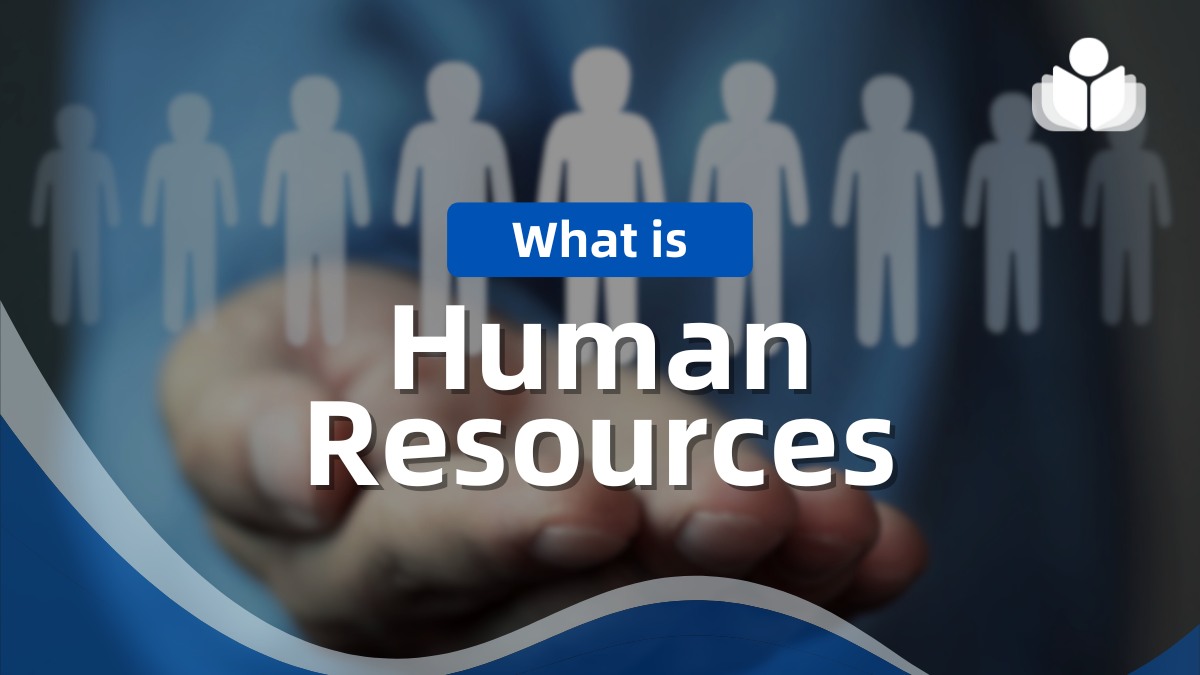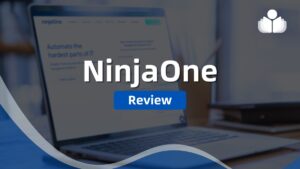Human Resources (HR) is a pivotal function within organizations, dedicated to managing and optimizing the employee lifecycle. From recruitment and onboarding to performance management, training, and development, HR is crucial in ensuring that the organization attracts, retains, and develops its most valuable asset, its people.
This article delves into the multifaceted world of HR, exploring its definition, core functions, types of HR roles, historical evolution, modern trends, and its critical impact on organizational success.
Join us to read more and gain a deeper understanding of the dynamic field of Human Resources.
Definition of Human Resources (HR)
Human Resources (HR) is a department within an organization responsible for managing various aspects related to the employees. This includes recruitment, onboarding, training and development, performance management, employee relations, and ensuring compliance with labor laws and regulations.
HR plays a crucial role in shaping the organizational culture, fostering a positive work environment, and facilitating effective communication between employees and management.
HR professionals are tasked with developing talent acquisition and retention strategies, managing employee benefits and compensation, and addressing any workplace issues. By effectively managing these functions, HR contributes significantly to the overall success and sustainability of the organization.
Core Functions of HR
Human Resources (HR) departments play a crucial role in organizations, managing a range of functions essential to the smooth operation and strategic goals of the company. Here are the core functions of HR:
Recruitment & Staffing
Recruitment and staffing are foundational activities within HR. Talent acquisition involves attracting, selecting, and hiring the right talent to meet the organization’s needs. This includes creating job descriptions, posting job advertisements, screening applications, conducting interviews, and making job offers.
Once a candidate is hired, the onboarding process ensures they are smoothly integrated into the organization. This includes orientation programs, training sessions, and introducing new hires to the company’s culture and values.
Training & Development
Continuous learning and growth are crucial for both employees and organizations. HR is responsible for identifying training needs and organizing development programs to enhance employees’ skills and competencies. This may involve workshops, seminars, online courses, and mentorship programs. Organizations can ensure a more skilled and adaptable workforce by investing in employee development.
Performance Management
Effective performance management is key to maintaining high levels of productivity and motivation. HR develops performance appraisal systems to assess and provide feedback on employees’ work regularly.
These systems help identify strengths, areas for improvement, and career development opportunities. Performance reviews often lead to discussions about promotions, salary adjustments, and professional development plans.
Compensation & Benefits
A fair and competitive compensation system is essential for attracting and retaining talent. HR designs and administers compensation structures, including salaries, bonuses, and benefits packages. Benefits may include health insurance, retirement plans, paid leave, and other perks that enhance employee well-being and job satisfaction.
Employee Relations
Maintaining positive employee relations is a critical HR function. HR addresses workplace issues, resolves conflicts, and ensures a harmonious work environment. This involves developing policies and procedures, mediating disputes, and fostering a culture of open communication and mutual respect. Effective employee relations contribute to higher morale, lower turnover rates, and a more engaged workforce.
Compliance With Labor Laws
Ensuring compliance with labor laws and regulations is a fundamental HR responsibility. HR professionals must stay updated on local, state, and federal employment laws to protect the organization from legal issues. This includes adhering to regulations related to wages, working hours, discrimination, harassment, safety, and health standards.
Types of HR Roles
The field of HR encompasses a variety of specialized roles, each focusing on different aspects of human resource management. These roles ensure that HR functions are effectively carried out, contributing to the organization’s overall success. Here are some key types of HR roles:
Human Resources Generalist
Human Resources Generalists are multi-skilled professionals responsible for a wide array of HR duties. They engage in activities ranging from recruitment to compliance, leveraging their comprehensive expertise to resolve diverse HR challenges and assist multiple organizational departments.
Human Resources Specialist
Human Resources Specialists are focused professionals dedicated to specific HR functions, such as recruitment, training, benefits administration, or employee relations. They use their specialized knowledge to develop and execute targeted programs and initiatives that meet specific organizational needs.
Talent Acquisition Specialist
Talent Acquisition Specialists are experts in scouting and securing the right candidates for the organization. They oversee the complete recruitment cycle, from identifying potential candidates to conducting interviews, making job offers, and managing the onboarding process.
Learning & Development Manager
Learning and Development Managers are responsible for crafting and administering programs that boost employee skills and knowledge. They pinpoint training requirements, create educational materials, and organize training sessions to promote employee development and prepare the workforce to achieve organizational goals.
Compensation & Benefits Manager
Compensation and Benefits Managers design and implement the organization’s compensation framework. They establish salary structures, incentive schemes, and benefits packages that attract and retain employees while maintaining internal fairness and adhering to legal standards.
Employee Relations Specialist
Employee Relations Specialists concentrate on fostering healthy interactions between the organization and its employees. They tackle workplace challenges, resolve disputes, and ensure adherence to labor regulations. Their efforts are crucial in establishing a supportive and respectful workplace atmosphere.
HR Business Partner
HR Business Partners work closely with senior leaders to align HR strategies with business goals. They provide strategic advice, support organizational change, and ensure that HR initiatives contribute to achieving business objectives. Their role is crucial in integrating HR into the overall business strategy.
HR Analyst
HR Analysts leverage data and analytics to guide HR decision-making. They gather and scrutinize data concerning employee performance, attrition, compensation, and other HR metrics. Their analysis provides valuable insights that enable HR departments to make informed, data-driven decisions and enhance HR operations.
HR Compliance Officer
HR Compliance Officers ensure the organization adheres to all relevant labor laws and regulations. They conduct audits, develop compliance policies, and provide training on legal requirements. Their work protects the organization from legal risks and ensures ethical practices.
Chief HR Officer (CHRO)
The Chief HR Officer (CHRO) is a senior executive responsible for overseeing the entire HR function. They develop and implement HR strategies, align HR practices with business goals, and lead the HR team. The CHRO plays a key role in shaping the organization’s culture and driving its overall success.
Internal vs. External Human Resources
When deciding how to handle human resources (HR) for your business, you have two main options: keep it in-house or outsource it. The choice largely depends on your company’s size and specific needs.
Outsourcing certain HR functions, like payroll, benefits administration, recruitment, onboarding, and legal compliance, can be smart. It saves time and brings in expertise. However, the core strategy for managing human resources should stay internal. This keeps the company culture and objectives aligned.
For smaller businesses, external HR services can be cost-effective. They provide specialized skills and expert access without a hefty price tag. You should still maintain a small internal HR team, perhaps just one or two people. This team can design essential policies and ensure the outsourced HR team follows your guidelines.
Ultimately, choosing an internal or external HR team hinges on your business needs and budget. Both approaches have their merits, and finding the right balance can optimize your HR functions.
Historical Evolution of HR
The concept of Human Resources has evolved significantly over time. Understanding its historical development provides insight into how HR has adapted to changing organizational and societal needs.
Early Beginnings
The roots of HR can be traced back to the early 20th century, during the Industrial Revolution. At this time, the primary focus was on improving worker productivity and efficiency. The emergence of scientific management, pioneered by Frederick Taylor, emphasized optimizing work processes and labor output.
Human Relations Movement
In the 1930s and 1940s, the Human Relations Movement emerged, shifting the focus from purely mechanistic views of work to recognizing the importance of human factors. Pioneers like Elton Mayo and his Hawthorne Studies highlighted the significance of social relations, employee satisfaction, and motivation in enhancing productivity.
Post-War Expansion
After World War II, the role of HR expanded further. Organizations began recognizing the importance of formalized training programs, employee welfare, and structured recruitment processes. The rise of labor unions also influenced HR practices, leading to more structured labor relations and collective bargaining.
Modern HR Practices
In the latter half of the 20th century, HR began to take on a more strategic role within organizations. The development of human capital theory emphasized the value of investing in employees’ skills and knowledge. HR departments became integral to organizational strategy, focusing on aligning HR practices with business goals.
Technological Advancements
The advent of technology in the 21st century has transformed HR practices. Automation, data analytics, and artificial intelligence have revolutionized recruitment, performance management, and employee engagement. HR information systems (HRIS) enable more efficient and data-driven decision-making, enhancing HR’s strategic impact.
Modern Trends in HR
The field of HR continues to evolve, driven by technological advancements, changing workforce demographics, and new organizational priorities. Some of the most significant modern trends in HR include:
Digital Transformation
Technology is reshaping HR processes, making them more efficient and effective. Digital tools and platforms streamline recruitment, onboarding, training, and performance management. Artificial intelligence (AI) and machine learning (ML) are being used to enhance talent acquisition, predict employee performance, and personalize learning experiences.
Employee Experience
There is a growing emphasis on creating a positive employee experience. HR focuses on designing a holistic work environment that addresses employees’ physical, emotional, and psychological needs. This includes flexible work arrangements, wellness programs, and initiatives that foster a sense of belonging and purpose.
Diversity, Equity, & Inclusion (DEI)
Promoting diversity, equity, and inclusion has become a top priority for many organizations. HR plays a crucial role in developing and implementing DEI strategies, ensuring that the workplace is inclusive and that all employees have equal opportunities for growth and advancement.
Remote Work & Hybrid Models
The COVID-19 pandemic accelerated the adoption of remote work and hybrid work models. HR has had to adapt to new ways of managing and supporting a distributed workforce. This includes developing remote work policies, ensuring effective communication and collaboration, and addressing challenges related to remote employee engagement and productivity.
Data-Driven HR
Data analytics is becoming increasingly important in HR. By leveraging data, HR professionals can gain insights into employee behavior, performance, and engagement. This enables more informed decision-making and the development of targeted strategies to improve organizational outcomes.
Continuous Learning & Development
Lifelong learning is essential in the rapidly changing world of work. HR is focused on creating a culture of continuous learning, where employees are encouraged to upskill and reskill to meet evolving job requirements. This includes providing access to online courses, mentorship programs, and career development resources.
Wellness & Mental Health
Employee well-being is a critical concern for HR. Organizations are investing in wellness programs that address physical health, mental health, and work-life balance. HR initiatives include stress management workshops, mental health resources, and initiatives that promote a healthy work-life balance.
The Impact of HR on Organizational Success
The role of HR in organizational success cannot be overstated. By effectively managing human capital, HR contributes to several key areas:
Talent Attraction & Retention
HR’s ability to attract and retain top talent directly impacts organizational performance. A strong employer brand, competitive compensation packages, and a positive work environment make the organization more attractive to potential employees. Effective retention strategies, such as career development opportunities and employee recognition programs, help keep top performers engaged and committed.
Employee Engagement & Productivity
Engaged employees are more productive, innovative, and committed to their work. HR initiatives that promote employee engagement, such as regular feedback, recognition, and opportunities for growth, lead to higher levels of job satisfaction and performance. A motivated workforce is more likely to contribute to the organization’s success and drive business outcomes.
Organizational Culture & Climate
HR plays a pivotal role in shaping and maintaining the organizational culture. A positive culture fosters collaboration, innovation, and a sense of belonging. HR initiatives that promote core values, ethical behavior, and a supportive work environment contribute to a positive organizational climate. A strong culture attracts talent, enhances employee morale, and supports long-term business success.
Compliance and Risk Management
Ensuring compliance with labor laws and regulations protects the organization from legal risks and financial penalties. HR’s role in developing and enforcing policies, conducting audits, and providing training on compliance issues helps mitigate risks. A proactive approach to compliance also enhances the organization’s reputation and trust with stakeholders.
Strategic Alignment
HR’s strategic alignment with business goals ensures that human capital initiatives support overall organizational objectives. By understanding the business strategy and aligning HR practices accordingly, HR contributes to achieving Key Performance Indicators (KPIs) and driving business growth.
Strategic HR involves workforce planning, talent management, and succession planning to ensure the organization has the right people in place to achieve its goals.
Conclusion
Human Resources (HR) is a dynamic and multifaceted function that plays a critical role in organizational success. From recruitment and training to performance management and employee relations, HR is integral to managing and optimizing the employee lifecycle.
The historical evolution of HR highlights its adaptation to changing organizational and societal needs, while modern trends reflect the ongoing transformation driven by technology, diversity, and changing work models.
By effectively managing human capital through various specialized roles, HR contributes to talent attraction and retention, employee engagement, organizational culture, compliance, and strategic alignment. As organizations continue to navigate an increasingly complex and competitive landscape, the importance of HR in driving sustainable success cannot be overstated.
 Sections of this topic
Sections of this topic
















